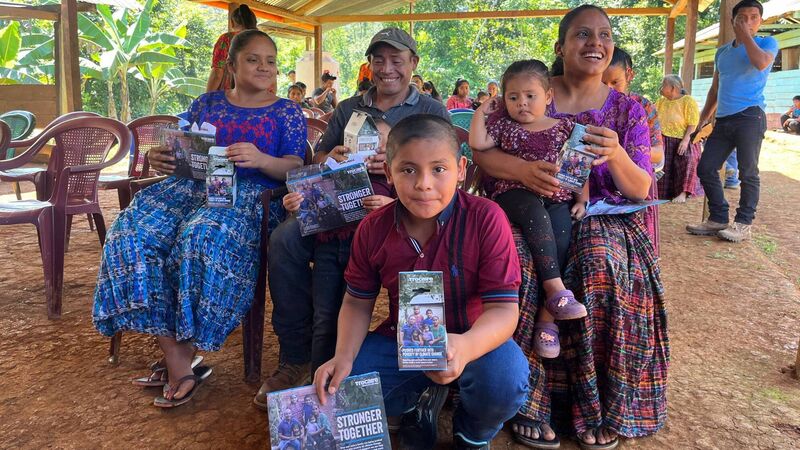Tradition of giving matters more than ever in a world in turmoil

Julio, Ilma and their four children, 13-year-old Miriam; 11-year-old Julio Jnr; four-year-old Deborah; and baby Gloria feature on this year's Trócaire Box.
As Lent drew to a close and Easter Sunday was celebrated throughout the country, families gathered to celebrate, eat chocolate, and enjoy the Bank Holiday. I reflected on the last six weeks of Lent.
The tradition of giving something up still resonates with many — a guilty pleasure, a bad habit, maybe the morning scroll through social media - but this year, as I finish my first Lent working for Trócaire, the idea of “giving something up” carries a heavier weight. Because in Guatemala, children are giving up something they should never have to: their education.
CLIMATE & SUSTAINABILITY HUB
















